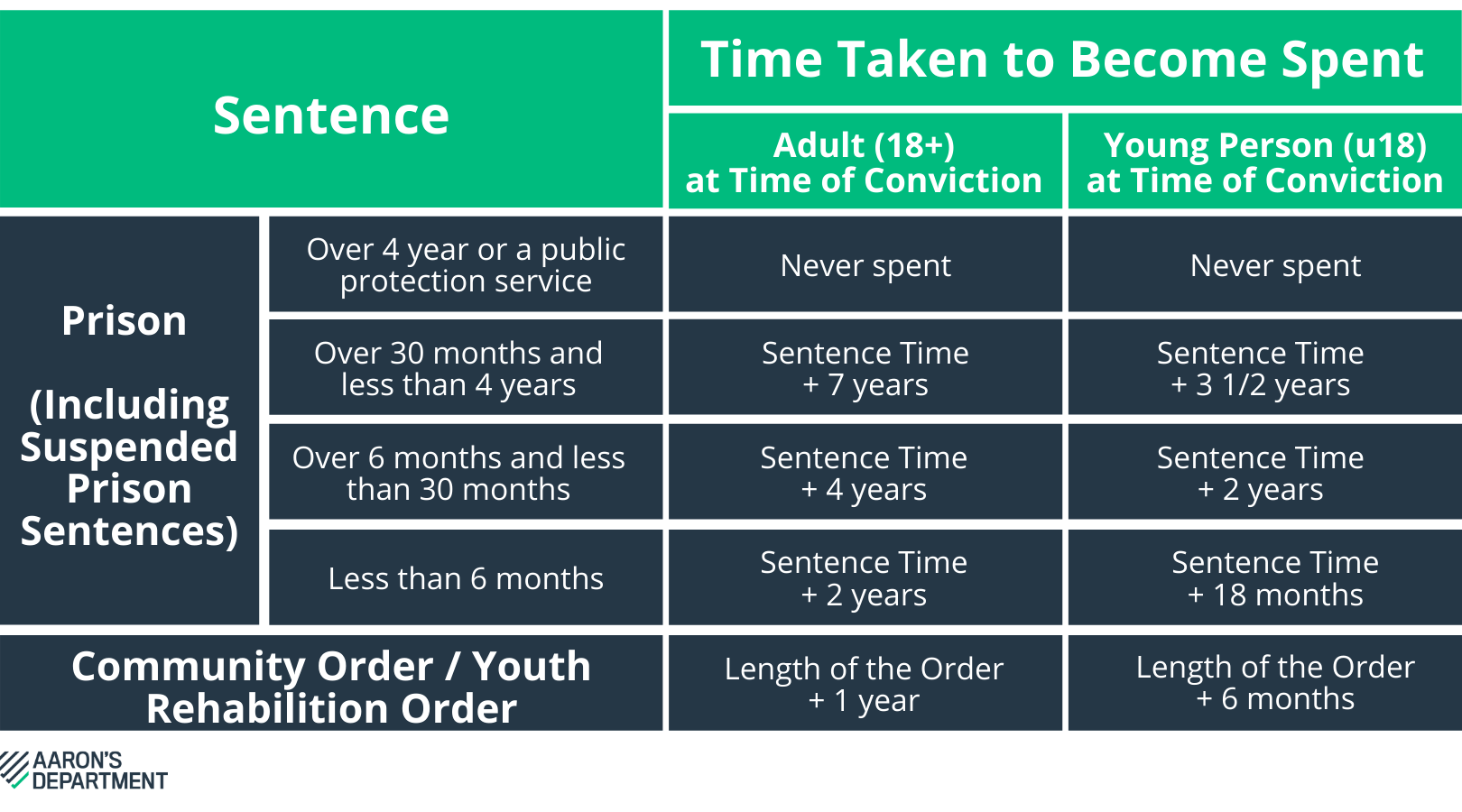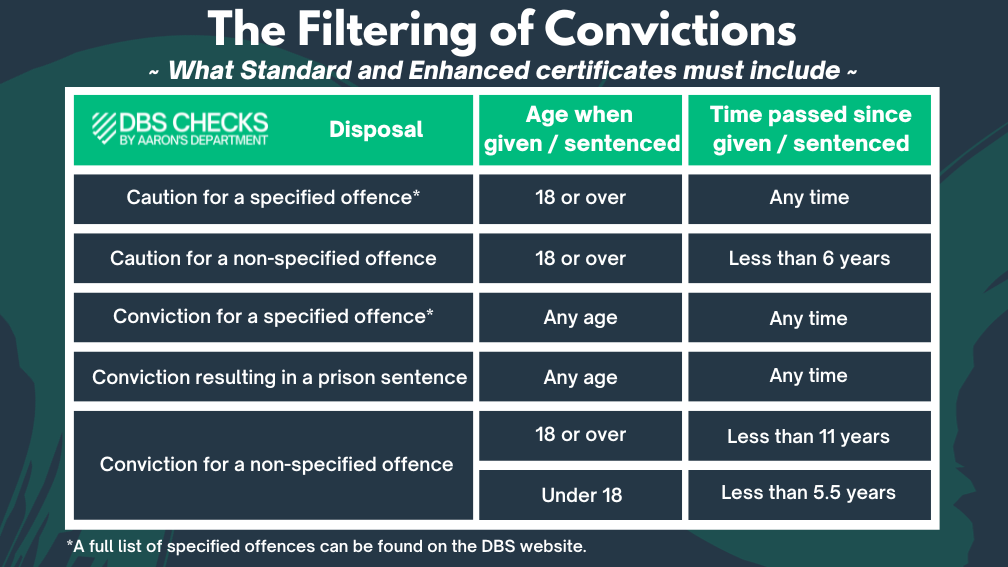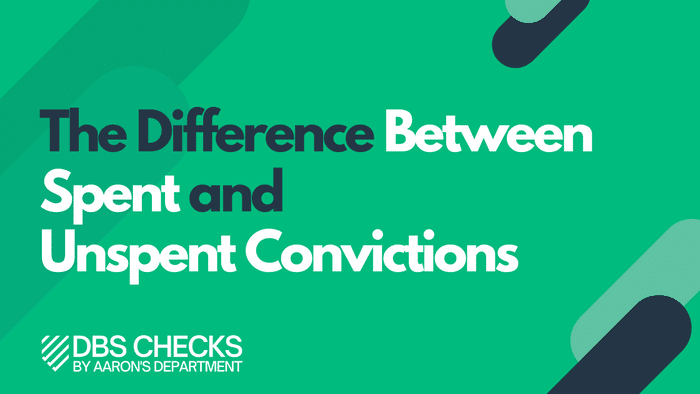The difference between spent, and unspent convictions is based on the Rehabilitation of Offenders Act 1974, and depends on the sentence a person received in court. Certain convictions will never be ‘Spent’ – these are known as Specified Offences.
Table of Contents
What are Unspent Convictions?
Unspent convictions are convictions, final warnings, and/or reprimands from the PNC that have not passed the amount of time necessary to become spent. All offences are unspent by default!
There are specific convictions that will never become spent. These can include terrorism or sexual offences, and will always remain unspent convictions. To view the government’s list of specified offences, click here.
(This list has been sourced from NIdirect, Northern Ireland’s version of the gov.uk website, since there doesn’t appear to be a full UK list available online. The wordings of the offences may be slightly different, but (in practice) if your offence is Specified in NI, it will be in the rest of the UK)
You can use the table below to calculate how much time it takes for convictions to become spent:


Suspended Sentences
As the table above shows, suspended sentences are subject to the same rules and conditions as regular sentences. They appear on DBS checks, just like any other conviction.
What Are Spent Convictions?
Spent convictions are any convictions, final warnings, or reprimands on the Police National Computer (PNC) that occurred far back enough that, according to the ROA Act 1974, the offence should be treated as if it never happened. This legal concept acknowledges an individual’s rights to rehabilitation, and a clean slate.
Convictions become “spent” after a specific period of time has passed since the conviction without any further criminal activity. Once a conviction is spent, individuals are often not required to reveal it in various contexts like job applications, housing applications, or other inquiries.
This strikes a balance between an individual’s right to move forward without the constant stigma of past mistakes, and the need for transparency in specific situations.
What about the Filtering of Convictions?
The Filtering of Convictions is a rule that applies to police cautions and minor convictions, mainly relating to offences committed under the age of 18. You can use the table below to see which convictions are filtered and when, or read our Guide To The Filtering Of Convictions for more detail.
Whereas the laws determining Spent and Unspent Convictions affect what is shown in a Basic check, the Filtering of Convictions rules apply to what will be shown in all levels of DBS checks.


Summary – Spent and Unspent Convictions
In summary, both spent & unspent convictions will show on Standard and Enhanced DBS checks – but employers must treat the spent convictions as if they never took place. Most convictions will eventually become spent. In some cases, convictions deemed less serious will be “filtered” and not show up on DBS checks.
Does your organisation require DBS checks? Aaron’s Department is an Umbrella Body, offering fast, simple, affordable DBS check for employers. Feel free to give one of our experts a call on 0113 877 0171, or email contact@aaronsdepartment.com to find out how we can help!
Forward this page!
Related Pages – Spent and Unspent Convictions. What’s the Difference?
If you have found this article on Spent and Unspent convictions useful, we’ve linked some related reading below:
- Do driving convictions show on DBS checks?
- Can you fail a DBS check?
- What to do if you live with someone on the Barred List
About The Author


Kellie Dawson
Kellie is our in-house legal expert when it comes to DBS checks. With a background in the legal sector, she has become a recognised authority in this area.

My mum has been wrongfully accuse of something got nfa but they will not give her dbs back so she can’t go back to work it’s been nearly a year could you help me please
Hi Dan,
What do you mean that they haven’t given her her DBS back? I would recommend talking to whoever has taken her DBS, or asking her employers to carry out a new DBS check.
As someone new in England, less than a year with His/her family/kids, and was disciplining his kids using his country method but was arrested and charged with child neglect, physical and emotional harm, and has spent less than 24 hours in the police. What is the number of years/or months he/she has to spend before working with children with DBS again?
Hi Peter,
It depends if the person has been Barred from working with Children. If they have, they will never be able to work with children again.
If not, it will likely appear as additional information on the DBS, and it will be the employer’s decision on whether to hire the individual.